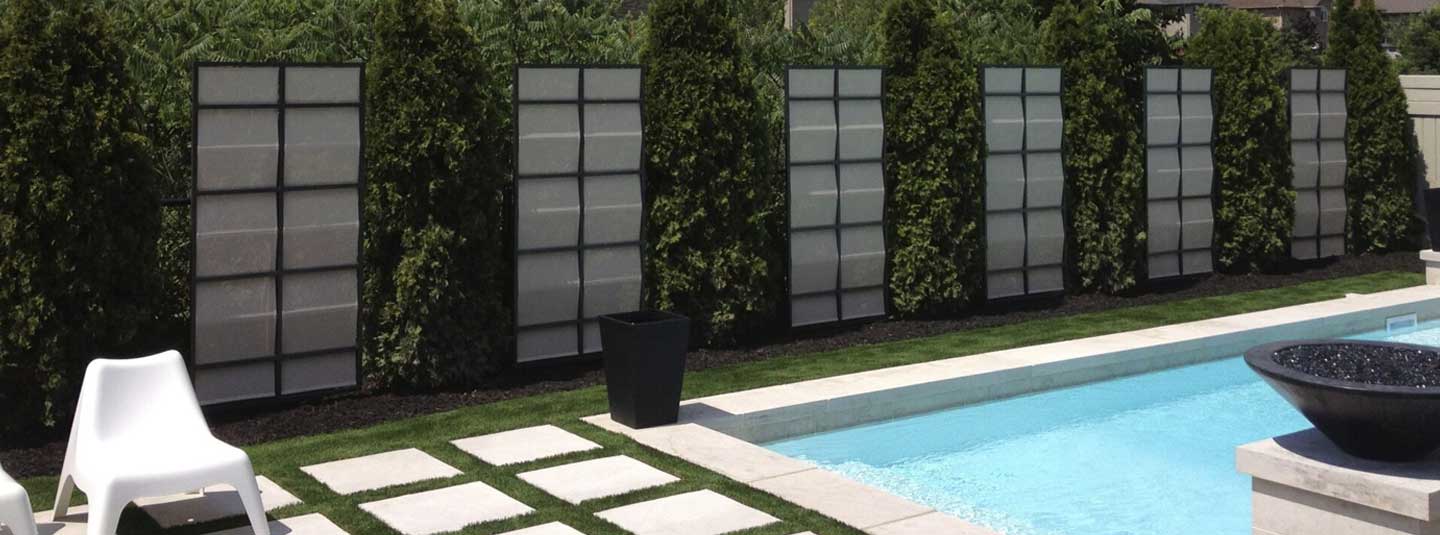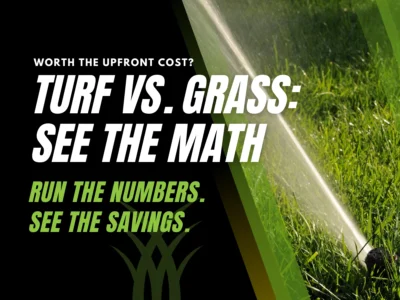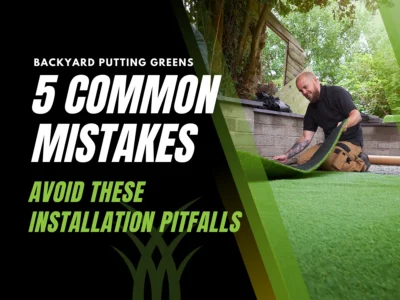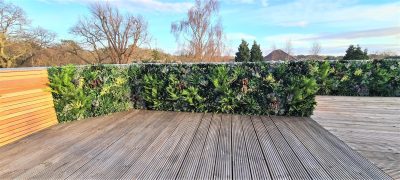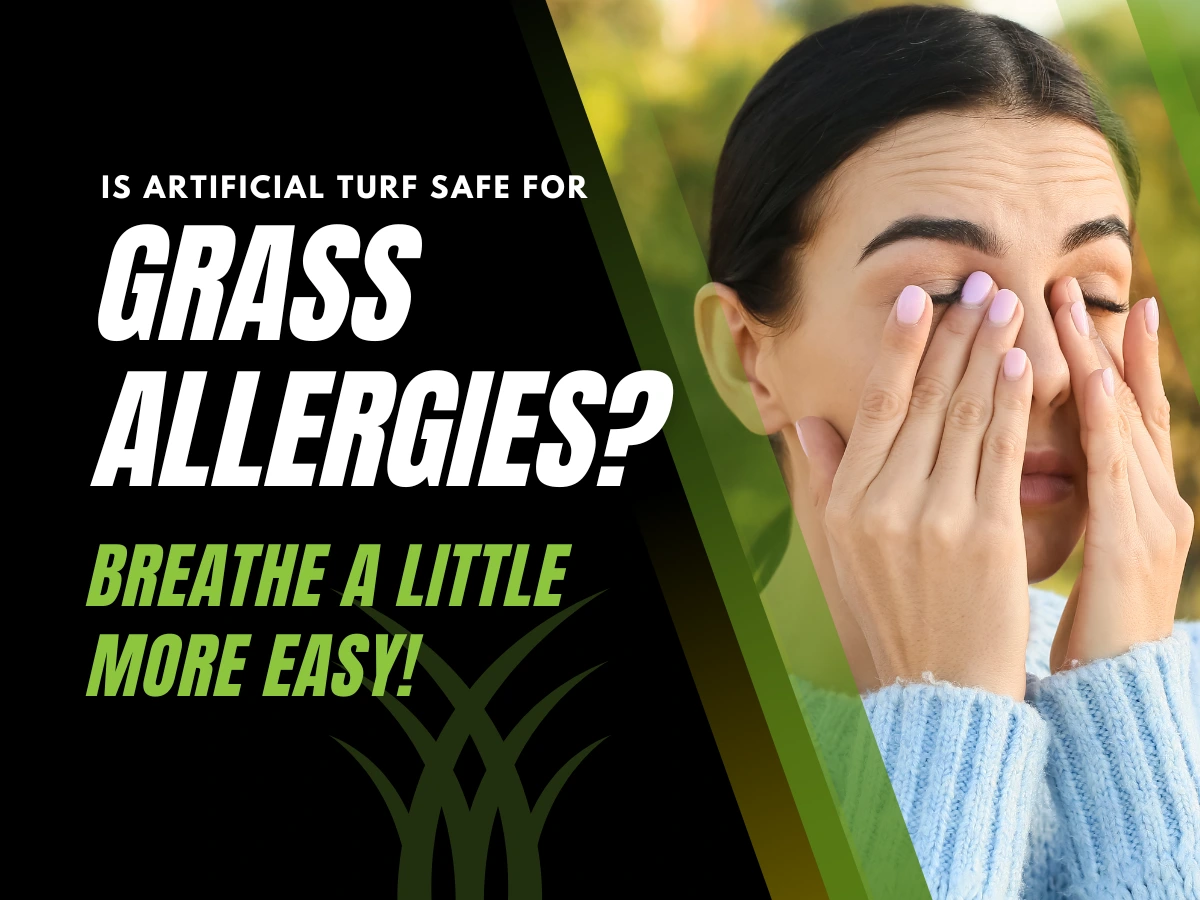When you have a grass allergy, it can be next to impossible to enjoy the outdoors during spring and summer. Itchy eyes, non-stop sneezing, and that annoying tickle in your throat can turn a relaxing day in the yard into a miserable experience that soon sends you indoors – even when everyone else is having a great time.

If you or someone in your family struggles with allergies, you might be wondering: Is artificial turf hypoallergenic? The answer is yes. Allergy-friendly artificial grass offers a cleaner, allergen-free alternative to natural grass. In this guide, we’ll highlight why artificial lawns are a smart choice for allergy sufferers and what you can expect when making the switch.
What Grass Are Most People Allergic To?
Not all grass types trigger allergies equally. Certain species release more pollen than others, making them common culprits for allergy sufferers. Some of the worst offenders include:
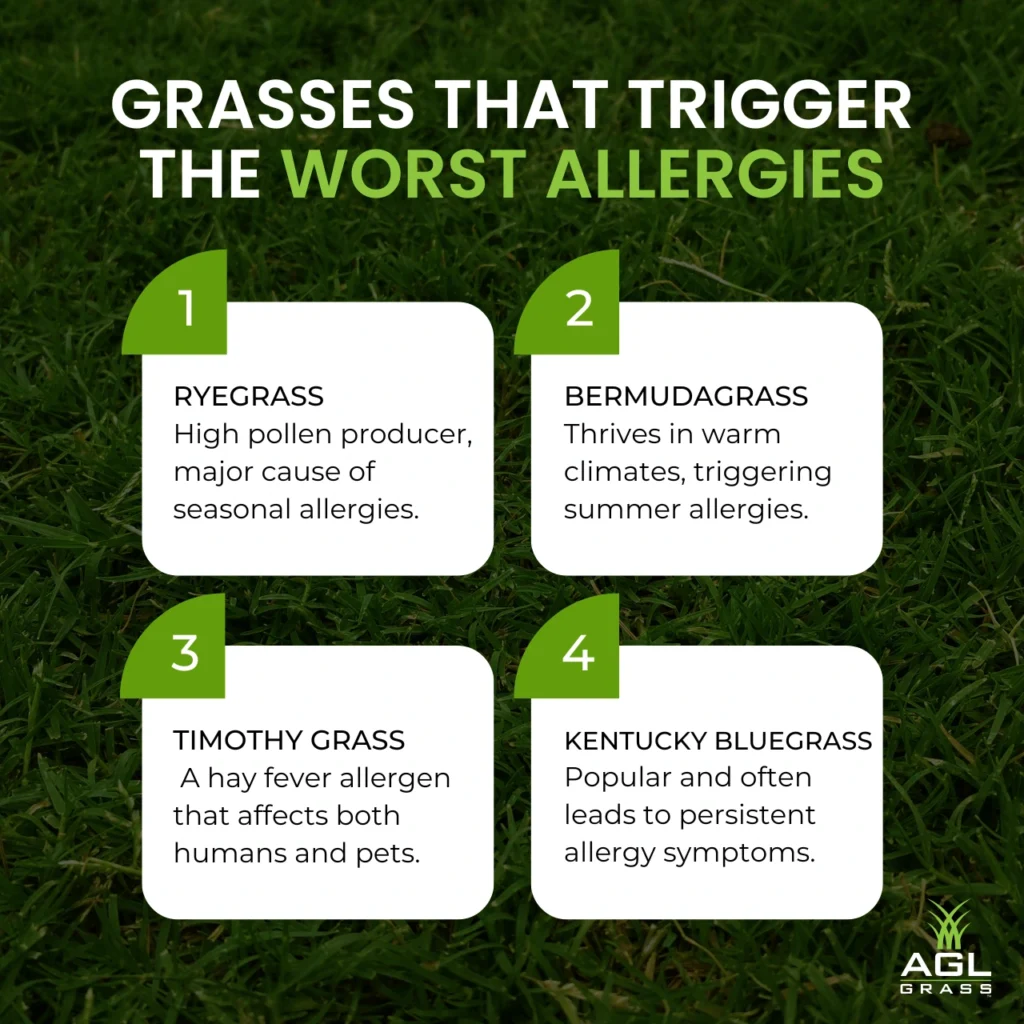
- Ryegrass – Found in many lawns and fields, this grass type produces high amounts of pollen.
- Bermudagrass – A warm-season grass that spreads aggressively and triggers allergies during summer.
- Timothy Grass – A major allergen in hay fever season, often affecting both humans and pets.
- Kentucky Bluegrass – Frequently used in residential lawns but can lead to persistent allergy symptoms.
Since these grass types are heavy pollen producers, replacing them with allergy-free artificial grass is one of the best ways to eliminate seasonal allergies with turf and enjoy a pollen-free yard.
Why Does Natural Grass Trigger Allergies?
If you’ve ever found yourself sneezing uncontrollably after spending time on a natural lawn, grass pollen is likely to blame. During warm months, many grass varieties release pollen into the air, which can trigger allergic reactions. For people with seasonal allergies, this can mean months of discomfort, especially in coastal or warmer areas where grass grows year-round.
Pollen isn’t the only issue, though. Natural grass also traps other allergens like mould, dust, and pet dander. When you walk, sit, or play on the grass, these allergens get stirred up into the air, making your symptoms even worse. Even mowing the lawn can send grass clippings and pollen flying everywhere, which can trigger allergies even if you weren’t having symptoms before.
So what’s the solution? A lawn that doesn’t produce pollen, trap allergens, or require mowing in the first place. This is where non-allergenic synthetic turf comes in.

Is Artificial Grass a Good Choice for Allergy Sufferers?
Hypoallergenic artificial turf doesn’t produce pollen like natural grass. That’s why artificial grass for allergy sufferers is an excellent choice for a cleaner, healthier yard.
Unlike some turf options that use crumb rubber infill, our artificial grass is infill-free, eliminating concerns about airborne rubber particles. A study by the Norwegian Institute of Public Health found no immediate health risks from synthetic turf, even for vulnerable populations.
How Does Hypoallergenic Artificial Turf Reduce Allergens?
If you’ve been looking for a way to keep your yard green without triggering allergies, a pollen-free artificial grass solution offers a fantastic alternative. Here’s why:

- No Pollen Production: Natural grass releases pollen during certain seasons, but fake grass doesn’t produce pollen at all. That means fewer airborne allergens are floating around your yard.
- No Mould and Mildew: Real grass holds moisture, creating the perfect environment for mould and mildew. Because artificial grass drains quickly, water doesn’t pool on your lawn and there’s no mould growth.
- No Need for Chemical Lawn Treatments: Many people are sensitive to pesticides, fertilizers, and herbicides, all of which are commonly used on natural grass. Fake grass eliminates the need for these chemicals, making it a better option for allergy sufferers.
- Easy to Clean: Artificial turf doesn’t trap dust, pet dander, or debris. It can also be hosed down or brushed to keep your yard free from allergens.
- No Grass Clippings: If mowing the lawn makes your allergies worse, artificial grass eliminates the problem entirely. No more cutting, no more stirring up allergens, and no more sneezing every time you step outside.
Eliminating Seasonal Allergies With Turf
Natural grass releases pollen seasonally, while hypoallergenic artificial turf ensures a cleaner, allergen-free yard all year round.
Here’s why artificial grass keeps allergy symptoms under control every season:
- Spring & Summer: No grass pollen means no seasonal allergy flare-ups.
- Autumn & Winter: Efficient drainage prevents mold and mildew from fallen leaves or moisture buildup.
- All Year: A consistently clean surface that won’t trap dust or dander.
Switching to hypoallergenic artificial turf is a long-term investment in a healthier, allergy-free outdoor space. If you’re looking to eliminate seasonal allergies with turf, artificial grass provides a year-round solution that keeps pollen and airborne allergens at bay.
Does Artificial Grass Cause Itching?
Artificial turf is designed to be non-irritating, unlike natural grass that traps pollen and fertilizers. However, low-quality synthetic turf may feel abrasive, so choose high-quality artificial grass, and rinse it occasionally to remove dust and allergens.
Is Artificial Grass Safe for Kids with Allergies?
If you’re looking for the best artificial grass for allergy sufferers, our artificial turf is one of the safest and most effective options for a pollen-free play space.
If your child has grass allergies, you’re worried about them rolling around in the grass, only to come inside covered in pollen and sneezing up a storm. With fake grass, that’s no longer a concern.

Our artificial turf is soft, non-toxic, and completely safe for kids to play on. Because it doesn’t hold moisture like natural grass, it stays cleaner and drier: no tracking in muddy footprints. It’s also a great choice for schools, daycare centres, and public parks where children need a clean, allergy-free space to run and play.
What About Pets? Can Dogs Be Allergic to Grass?
Believe it or not, dogs can have grass allergies too. If your pup constantly licks their paws, scratches, or gets red, irritated skin after spending time on natural grass, they might be reacting to pollen, fertilizers, or pesticides.

These irritants can trigger a range of allergy symptoms, including:
- Excessive paw licking and chewing
- Frequent scratching or rubbing against surfaces
- Red, inflamed skin, especially on paws and belly
- Watery eyes or sneezing
- Chronic ear infections or head shaking
Certain dog breeds are more allergy-prone than others. Breeds like Golden Retrievers, Labrador Retrievers, Boxers, Poodles, and Bulldogs tend to suffer from environmental allergies, including reactions to grass pollen. If your dog experiences symptoms after being outdoors, switching to hypoallergenic artificial turf for dogs could make a big difference in their comfort and health.
Will Hypoallergenic Artificial Turf Help Allergy-Prone Dogs?
Absolutely! Allergy-free synthetic turf doesn’t produce pollen or trap airborne allergens like natural grass does, making it a great option for dogs with sensitivities. That means less sneezing, less irritation, and more time enjoying your yard. Plus, synthetic turf is engineered to drain quickly, helping to prevent moisture buildup that could attract allergens If you’re looking for an allergy-free artificial grass solution for your space, artificial turf helps keep seasonal allergy symptoms at bay. Here’s how:
No Grass Pollen Exposure: Artificial turf doesn’t release pollen; natural grass does. Meaning, your dog won’t be exposed to seasonal allergens.
No Harmful Lawn Chemicals: Many natural lawns require pesticides, fertilizers, and herbicides, which can cause irritation in dogs. With artificial turf, these chemicals aren’t needed, creating a safer environment.
Better Drainage & Hygiene: This low maintenance pet turf allows urine to pass through efficiently, preventing bacterial buildup and keeping your yard fresh and odor-free. It won’t become a muddy mess that gets tracked into your home, either.
Reduced Skin Irritation: Because synthetic grass doesn’t trap allergens like mold, mildew, or dust mites, dogs with sensitive skin will experience fewer flare-ups.
For dog owners dealing with constant allergy flare-ups, investing in allergy-free grass for dogs can create a cleaner, safer outdoor space for their pets.
It’s a great solution for homes, dog parks, and pet daycare centers looking to provide an allergy-free artificial grass area. By eliminating common triggers like pollen and fertilizers, hypoallergenic artificial turf goes to work so that your furry friend can enjoy outdoor time without the discomfort of allergic reactions.
Case Study: Chrissy Teigen’s Allergy-Friendly Lawn Makeover
Chrissy Teigen is no stranger to setting trends. Because she struggles with grass allergies, the model and cookbook author swapped her natural lawn in Beverly Hills for artificial grass. The difference was immediate: she could host tea parties and picnics and simply enjoy her yard without the usual sneezing and irritation.
“This is very exciting for me!” Chrissy exclaimed on Instagram. She isn’t the first grass allergy sufferer to say so, and she likely won’t be the last.
How Do You Maintain an Allergy-Friendly Artificial Lawn?
While artificial grass is much lower maintenance than real grass, keeping it clean is still important for reducing allergens. Here’s how to make sure your synthetic lawn stays fresh and allergy-free:
- Hose it down occasionally to remove dust, pollen, and pet dander.
- Brush the turf to keep the fibres standing upright and prevent debris from settling in.
- Pick up pet waste promptly and rinse the area to keep it hygienic.
These simple steps don’t take much time, and they’ll keep your artificial grass looking great as well as allergy-friendly.
Common Questions About Artificial Grass & Allergies
Yes, artificial grass helps reduce allergy symptoms by eliminating pollen exposure, reducing dust buildup, and preventing mould growth.
While artificial grass is designed to be hypoallergenic, some individuals may experience mild reactions to the materials used in its production. Allergies to synthetic fibers, rubber infill, or adhesives used during installation are rare but possible. If you have chemical sensitivities, choosing low-VOC, artificial turf with non-toxic infill (or no infill at all) can help reduce any potential irritation.
Artificial turf is made from non-organic materials, so it doesn’t harbor grass pollen, mold, or mildew like natural lawns do. If you have sensitive skin, choosing high-quality synthetic grass is your best bet.
People allergic to natural grass may experience sneezing, itchy eyes, congestion, skin irritation, and asthma symptoms when exposed to grass pollen. Switching to hypoallergenic artificial turf can help reduce these reactions.
Artificial turf doesn’t release pollen or require chemical treatments like pesticides and fertilizers, which may help reduce outdoor allergens for some asthma sufferers. However, individual sensitivities vary, and certain materials used in artificial turf (such as infill or adhesives) could potentially trigger reactions in sensitive individuals. If you or a family member has asthma or severe allergies, it’s best to consult a physician before making any decisions that may impact your health.
Yes! Many dogs suffer from grass allergies, leading to itching, red skin, and excessive licking. Allergy-free grass for dogs eliminates pollen exposure and creates a safer, more comfortable space for pets.
Is Fake Grass Worth It for Allergy Sufferers?
If you’re looking for a way to enjoy your yard without the allergy struggles that come with natural grass, artificial turf is an excellent option. It’s hypoallergenic, easy to maintain, and free from the pollen, mould, and chemicals that trigger allergic reactions. So go ahead: breathe easy, enjoy the outdoors, and say goodbye to grass allergies for good!
At AGL Grass, we can help you transform your yard into a space you’ll enjoy all year round. For more information about our fake grass products or to schedule a no-obligation quote, call us today at 1-877-884-7277.









